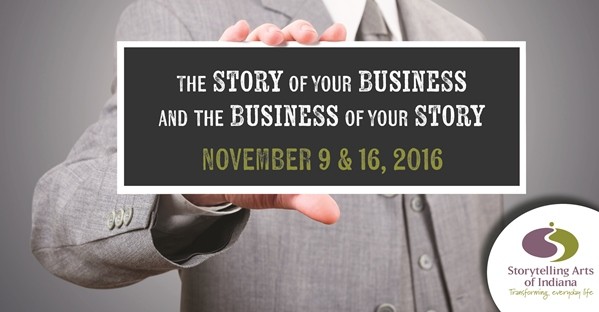
Storytelling is an ideal way to convey your business’ message in a way that resonates with listeners, and potential customers. Ellen Munds, executive director of Storytelling Arts of Indiana, elaborates and provides information on important upcoming workshops:
Telling the story of your business is harder than it sounds, right? You think to yourself, Oh, I can do that. But when it comes down to it, most of us get stuck, asking ourselves, “What IS the story of my business? What story am I supposed to tell? What if I don’t think it’s an especially interesting story?”
Storytelling is one of the current buzzes in marketing. Your competition is doing it. Your business partners are doing it. And research tells us it makes a difference because people relate to stories. People connect through stories.
Granville Toogood, author of The New Articulate Executive, says that when we’re reading data, reports, product specs, etc., we’re working out of our “conscious mind.” That’s good. We need to do that to make good decisions. But if you and your competitor present equally compelling data about what you offer, what will make us buy from you? The organization that wins us over is the one that gets us into our “primal mind.” Our primal mind is the part of us that responds out of our deep likes, dislikes and gut feelings. The only way to get to a person’s primal mind is through story.
Neuro-economist Paul Zak adds that when we encounter stories, our levels of cortisol and oxytocin increase. The cortisol makes us more attentive and the oxytocin makes us more sympathetic. So if you want people to pay attention to your business and feel sympathetic to your cause, you need to tell stories!
What are the compelling and influential stories of your business? The next time someone asks you, or any of the people on your management team, “What does your company do?,” will you tell a story which influences that person to spend more time with you? Or will your story be the same, non-memorable word salad shared by every other generic worker in the room?
Learn more through a two-part workshop titled “The Story of Your Business and the Business of Your Story.” It takes place November 9 and 16 at Barnes & Thornburg in downtown Indianapolis. Storytelling Arts of Indiana presents the sessions in collaboration with Accent On Business and the hosts. Learn more online.

 Russ Linden scribed an interesting column for
Russ Linden scribed an interesting column for